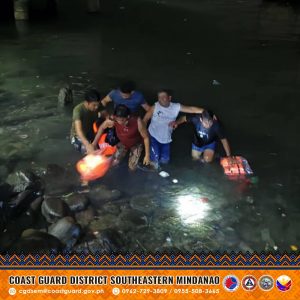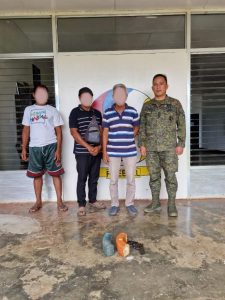The City’s top health officer has warned the public to avoid swimming in rivers and swimming pools after poliovirus was detected in Davao River.
“People should avoid swimming in the rivers and public swimming pools,” City Health Office (CHO) Head Josephine Villafuerte said.
Villafuerte confirmed that sample taken by the Research Institute for Tropical Medicine (RITM) on August 22 detected the virus in a result released last Sept. 9.
According to Villafuerte, the water sample was sourced near the Bolton Bridge site.
The top health officer said that the virus possibly entered in the sewerage or directly to the river.
“We will be meeting with the respective government agencies and coastal barangays in the city to discuss and mitigate the situation,” she said.
Villafuerte said her team is checking communities with possible polio cases to contain the spread of the virus.
“We’ve been checking the entire community if there are confirmed cases of poliovirus, so far there is none,” said Villafuerte.
She said the virus can be acquired through infected waterways and contaminated water bodies such as swimming pools. Swimming in the Davao River is strongly being discouraged.
The health officer said they will also call the attention of beach and water resorts owners to inform them about the situation.
The health officer urged the public “to always wash their hands, ensure that they have own bathrooms, take the vaccine and maintain proper hygiene.”
Although there is no reported polio case in the city, Villafuerte said the public should remain vigilant and follow the preventive measures.
“There is no age limit when it comes to poliovirus, one should be vaccinated for him to be safe against the disease,” she said.
The CHO is expected to intensify its anti-polio vaccination.
The oral polio vaccine (OPV) contains an attenuated (weakened) form of the virus, activating an immune response in the body. When a child is immunized with OPV, the weakened virus replicates in the intestine for a limited period, thereby developing immunity by building up antibodies.
While there is no cure for the virus, Villafuerte said the anti-polio vaccine can prevent the disease, which mainly affects children under 5 years of age.
Poliovirus causes polio, a viral disease that may affect the spinal cord causing muscle weakness and paralysis. The virus enters the body through the mouth, usually from hands contaminated with the stool of an infected person.
It is known to be more common in infants and young children and occurs under conditions of poor hygiene.
The Department of Health (DOH) on Thursday confirmed the re-emergence of polio in the Philippines, 19 years after the World Health Organization declared the country polio-free.
A polio case was confirmed in a three-year-old girl from Lanao del Sur.
Safe
Amid detection of poliovirus in Davao River, the Davao City Water District assures the general public that the water it provides to customers is safe to drink.
DCWD’s water supply is majorly sourced from under the ground and is geographically situated far from where the water sample was taken.
In a statement, the DCWD said it has strict water quality measures in place to assure the safety of the customers. The water utility also makes sure that the water it provides meets the Philippine National Standards for Drinking Water, the benchmark for water safety in the country.




